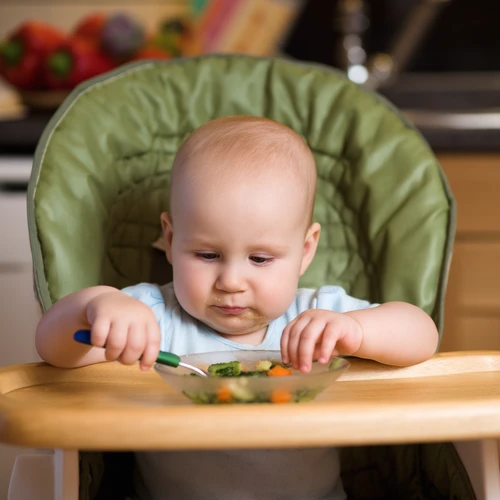The traditional view has been to start infants on purees first, gradually moving towards more textured foods as they grow older. However, baby-led weaning flips this approach by introducing babies directly to soft, manageable foods that they can grasp and chew.
One of the key principles behind BLW is encouraging babies to develop their fine motor skills while learning about textures, tastes, and eating behavior. Allowing your baby to explore food autonomously fosters an early appreciation for varied diets, which can be beneficial in addressing future eating habits and preferences.
Transitioning to Solid Foods While the idea of giving solid foods straightaway might seem daunting, knowing that babies naturally come equipped with reflexes like tongue thrust can help ease parental anxiety. It's essential to select appropriate food textures to reduce any potential choking hazards.A good rule of thumb for foods suitable for baby-led weaning is anything soft enough to mash between fingertips or easily dissolves in the mouth with minimal chewing. Some ideal starting points include:
- Steamed vegetables (carrots, sweet potatoes)
- Soft fruits (bananas, avocados, ripe peaches)
- Protein sources like chicken or fish
- Whole-grain pasta and cereals
The flexibility to let your baby dictate their intake is another benefit of BLW. This approach helps prevent overfeeding, fosters a healthier relationship with food, and aligns more closely with cues for hunger and satiety.
Benefits of Baby-Led Weaning Baby-led weaning offers numerous benefits beyond nutritional ones:- Enhanced motor skill development: Grasping, holding, and self-feeding improve hand-eye coordination and fine motor skills.
- Promotes independent eating habits: The freedom to explore food at their own pace helps babies develop confidence in eating solo
It's important for parents to be vigilant about the types of foods offered. Avoid giving babies hard candies, nuts, and small round items that are potentially choking risks.
Getting Started with Baby-Led Weaning Introducing solids through baby-led weaning should ideally start when your infant shows signs of readiness:- Sitting unassisted and has good head control
- Able to grab onto food and bring it effectively to the mouth
While transitioning from breast milk or formula, it's essential to ensure your baby continues receiving adequate nutrition. This means introducing the right variety of nutrient-rich foods as they grow.


